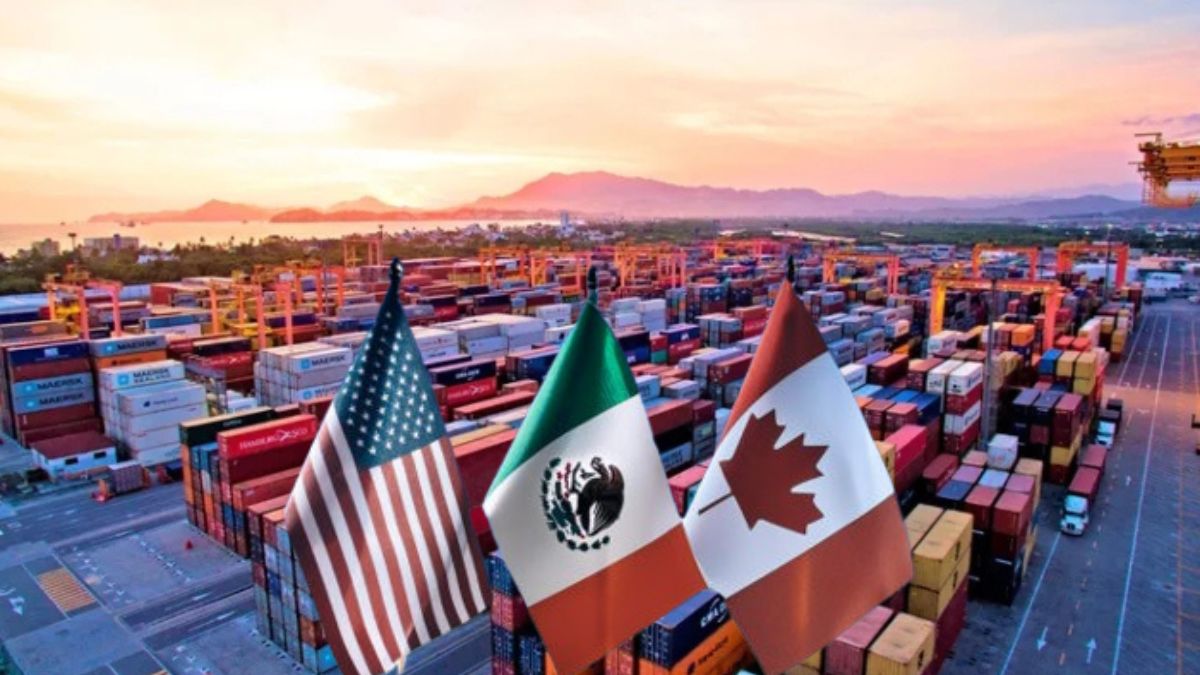
President Donald Trump signed an executive order on Saturday to impose tariffs on Mexico, Canada, and China, fulfilling a warning he made before returning to the White House.
Trump declared an economic emergency to impose tariffs on his three most important economic partners: 25 percent on all imports from Mexico and Canada, and 10 percent on goods from China.
This was confirmed on Saturday by the White House via its official X account, where several messages were posted stating that this measure is due to the lack of cooperation from these governments on issues such as migration, trafficking, and fentanyl.
“President Trump is implementing a 25 percent tariff that Mexican producers will have to pay until Mexico cooperates with the United States in the fight against drugs,” it stated.
It also mentioned that the Mexican cartels are the main traffickers of fentanyl, methamphetamine, and other drugs in the world and accused them of having an alliance with the Mexican government, which jeopardizes the national security and public health of the United States.
READ ALSO This chocolate is recalled for containing these dangerous ingredients
Regarding Canada, the White House detailed that the measure is due to a lack of cooperation in stopping traffickers entering the United States, and it will be implemented until the country works together with U.S. authorities against drug traffickers and on border security.
“Fentanyl production in Canada is on the rise, and last fiscal year enough fentanyl was seized at the northern border to kill 9.8 million Americans,” it said on the social network.
Trump threatens more tariffs on Mexico, Canada, and China
The executive order signed on Saturday by President Donald Trump includes a clause preventing Mexico, Canada, and China from retaliating, as otherwise, the United States will increase the tariffs.
The Republican also warned that he plans to impose tariffs on a wide range of imports in the coming months, covering products such as:
- Gas
- Oil
- Steel
- Aluminum
- Pharmaceuticals
- Semiconductors
“Our economy is strong”, responds Claudia Sheinbaum to Trump after tariffs on Mexico
Mexico’s president, Claudia Sheinbaum Pardo, stated that she is not concerned about the imposition of tariffs on Mexican products by the U.S. government, as she assured the country’s economy remains solid and stable.
“I am not worried because Mexico’s economy is very strong, very solid, and that is thanks to the people of Mexico, to the hardworking people who work every day to move our country forward,” she said.
The President of Mexico reaffirmed her government’s full support for Mexican migrants in the U.S. in light of recent mass deportations. She emphasized that Mexicans deserve respect and should not be treated disparagingly.
On Saturday, Sheinbaum held a meeting with members of the Business Coordinating Council (CCE) and government secretaries to discuss the Mexico Plan, a strategy aimed at positioning the country’s economy among the ten strongest in the world and securing investments of at least $277 billion, despite the policies implemented by Trump.
What are tariffs?
Tariffs are taxes imposed on imports of goods. Their purpose is to give a competitive advantage to domestic products over imported ones by influencing their final price.
What are tariffs used for?
Some of the main functions of tariffs include:
- Protecting local industry: By increasing the price of imported products, tariffs help favor the competitiveness of domestic goods.
- Increasing government revenue: Tariffs provide an additional source of income for the state.
- Tool for pressure in trade negotiations: Tariffs can be used to encourage other countries to open their markets to domestic products.









